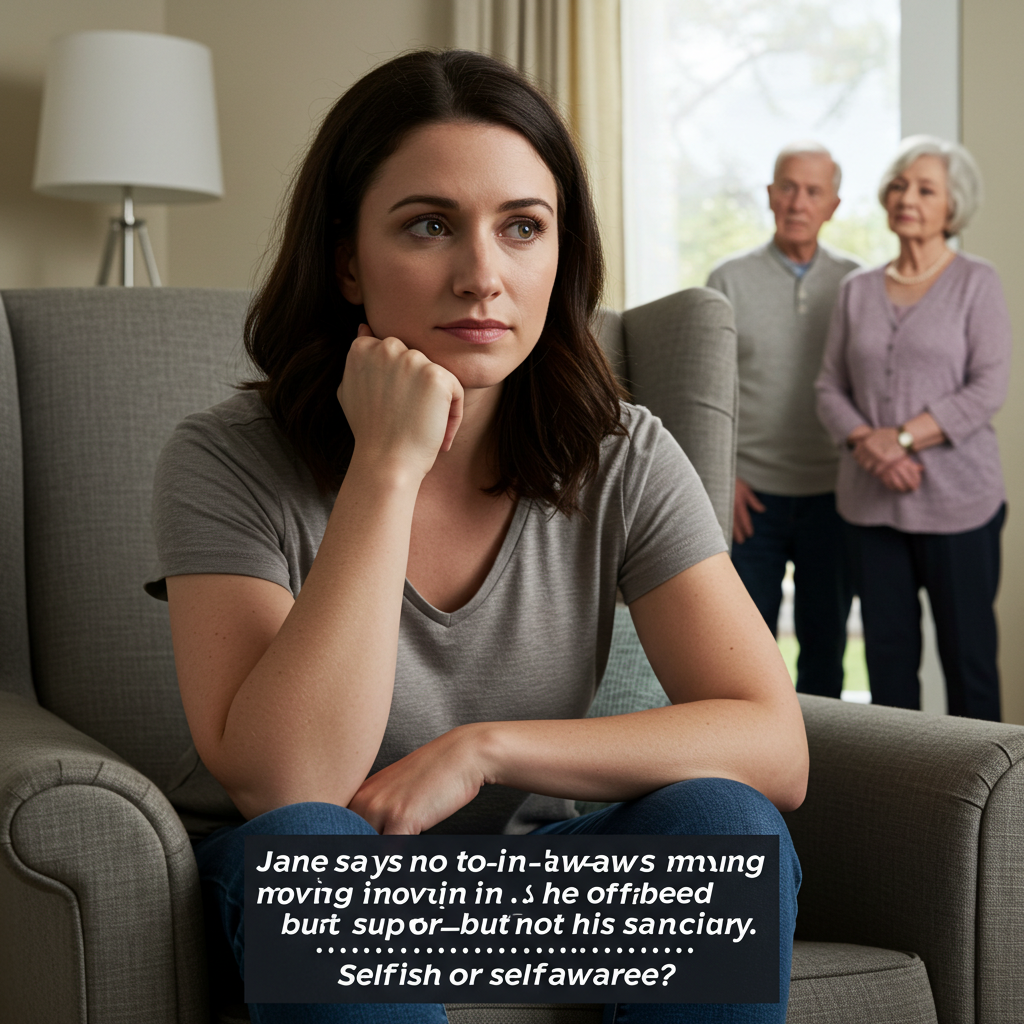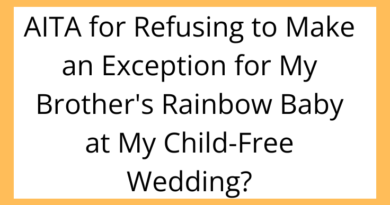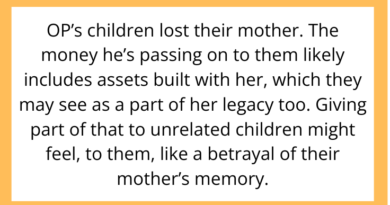Am I the Villain for Refusing to Let My Fiancé’s Family Move Into My House?
When it comes to blending families, things can get tricky—especially when money, space, and expectations are involved. In today’s AITAH-inspired scenario, we explore a complex situation that has the internet divided: Is setting boundaries with future in-laws a necessary act of self-preservation or a cold-hearted rejection?
Let’s break it down.
The Situation: A Home Turned Battleground

A 29-year-old woman—let’s call her Jane—posted to the r/AITAH subreddit with a dilemma that’s left commenters torn. Jane owns her own home. She bought it herself five years ago after working two jobs and saving diligently throughout her twenties. Her fiancé, Alex, 30, moved in with her a year ago after they got engaged.
Everything was going smoothly until Alex’s parents approached the couple with a request: they wanted to move in.
The reason? Financial difficulties. Alex’s father recently lost his job, and their rent had skyrocketed. They were looking to stay temporarily—“just six months,” according to Alex—to get back on their feet.
Jane, however, wasn’t on board.
Drawing the Line: Jane Says “No”

Jane explained that she worked incredibly hard for her independence and privacy. Her home was her sanctuary. She had no problem supporting Alex’s parents in other ways—offering to help pay for groceries, contribute to their rent, or even assist with job searches—but she didn’t feel comfortable having them live in her space.
“I need peace and boundaries,” she wrote in her post. “I work from home, I value quiet, and this is a space I created for myself.”
Alex was furious. He accused Jane of being selfish, ungrateful, and unwilling to support his family in their time of need. His argument was that family supports each other, and Jane’s refusal was a red flag.
Jane turned to Reddit for judgment: Was she the villain for refusing to let her future in-laws move in?
Boundaries vs. Support: A Delicate Balance

The Case for Jane: Protecting Personal Space
It’s not hard to see Jane’s perspective. She purchased her home independently and invited Alex in out of love—not obligation. Letting his parents move in would shift the dynamic significantly, making her feel like a guest in her own space.
Additionally, Jane was open to compromise. She wasn’t refusing to help. She simply didn’t want to share her living space with people she didn’t choose to live with—especially not for six months (or, realistically, longer).
The Case for Alex: Family Comes First
On the flip side, Alex may feel caught between loyalty to his fiancée and duty to his family. In many cultures and families, it’s expected that children support their parents in tough times, even if it means cohabiting.
From his point of view, Jane’s refusal might feel like a rejection of not just his parents, but the kind of life and values he envisioned for their future together.
Reddit Weighs In: Who’s Really the Villain?

Reddit’s AITAH community is known for its sharp takes, and this post was no different. The top-voted comments overwhelmingly sided with Jane.
“You’re not a villain for protecting your peace,” one commenter wrote. “Helping doesn’t mean sacrificing your mental health.”
Others pointed out that once someone gives up their home, it’s often hard to get it back. A “temporary” stay could stretch into a year or more, especially if Alex’s parents don’t find work quickly.
However, a few users also sympathized with Alex.
“If you’re marrying someone, you marry their family too,” another comment read. “This could be a dealbreaker if you two aren’t aligned.”
The Bigger Picture: Compatibility and Expectations

Cohabitation Isn’t Just About Space—It’s About Power
In relationships, the person who owns the home often holds more power in decision-making. That imbalance can create tension, especially when one partner feels like a guest or has to defend their family.
This situation highlights a common conflict in modern relationships: when one partner owns property and the other moves in, how do you make mutual decisions? Jane’s house may be legally hers, but Alex views it as their home.
The deeper issue here may be one of compatibility. Jane values autonomy and boundaries. Alex prioritizes family and collectivism. Those values aren’t necessarily wrong—but they may be fundamentally incompatible.
What Should They Do Next?

For Jane:
-
Reaffirm her boundaries while expressing empathy.
-
Offer tangible support in ways that don’t compromise her comfort.
-
Encourage a joint session with a therapist or counselor to navigate the conflict.
For Alex:
-
Reflect on whether Jane’s stance is about rejection—or self-preservation.
-
Consider alternative ways to support his parents without straining the relationship.
-
Open a conversation about shared values and what marriage will mean long-term.
The Takeaway: You’re Not Always the Villain for Saying No

This AITAH story strikes a chord because it taps into a universal tension: how much are we obligated to sacrifice for love and family?
Jane’s situation is a reminder that it’s okay to set boundaries—even with people you love. It’s okay to say no, especially when saying yes would mean sacrificing your well-being.
Relationships require compromise, yes—but not at the cost of personal peace and emotional safety.



